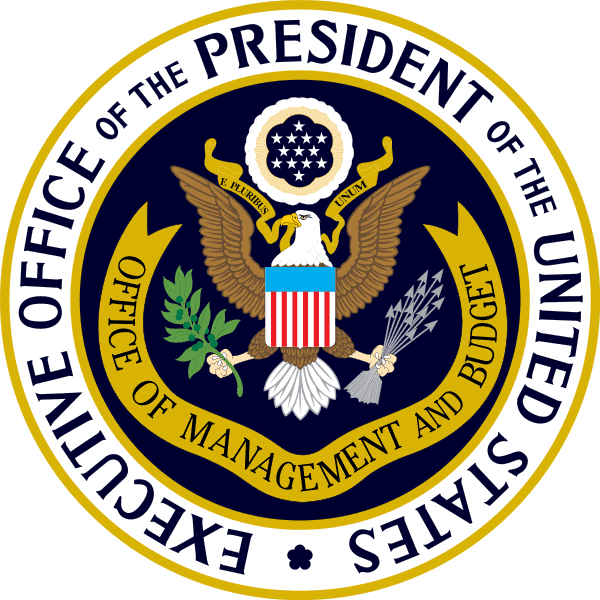What If Trump’s Regulations Exceed His Regulatory Rollback Savings?

 President Donald Trump has pruned rules and costs at a quicker pace than other presidents. But could his other policies torpedo that?
President Donald Trump has pruned rules and costs at a quicker pace than other presidents. But could his other policies torpedo that?
I have noted in the past that the Trump administration has, in some ways, deregulated even more than it took credit for, including with respect to guidance documents.
Technically speaking, Trump exceeded his one-in, two-out regulatory goals for “significant” regulations (see here for a survey of the confusing rule-species nomenclature), but that is getting harder to do. The offset ratio for significant rules in the most recent Unified Agenda was nearly 6-to-1. It’s a different story for sub-significant rules, so those have to be watched more closely.
Present-value dollar savings from regulatory streamlining are purported to be $8 billion in 2017 and $23 billion in 2018, with $18 billion anticipated for fiscal year 2019.
Trump’s streamlining of rules and regulations was characterized by explicitly rolling back the Obama agenda, such as the revocation, via Congressional Review Act “resolutions of disapproval,” of over a dozen Obama-era midnight rules. That was and is unique—an anomaly.
On October 17, 2018 in an Oval Office meeting on regulations and the economy with several industry-specific workers and cabinet officials, President Trump said: “We’ve removed more regulations, and we will continue to get rid of regulations.”
And then, in a little-noted remark, he said, “I think within a period of about another year, we will have just about everything that we’ve wanted” (see the C-SPAN video at the two-minute mark). This jumped out at me. Is Trump done with deregulation?
I hope not. There is plenty more to do on comprehensive regulatory reform—which should be a part of any infrastructure package. Trump also should implement an executive order on regulatory guidance documents, one of the most important remaining things he can do unilaterally.
There are warning signs though. The major pertinent issue is Trump administration’s own impulses favorable toward regulation, from antitrust to vaping. These undermine, and could even derail, his deregulatory program.
Prominently, Trump and Democrats finally “agree” on two prominent things: antitrust action against online and traditional media and regulation of social media speech (but for different reasons).
Antitrust: Trump has been most explicit about invoking antitrust action against tech and telecom, striking a discordant tone with the rest of the explicit deregulatory agenda. Antitrust is the original sin of the Progressive administrative/regulatory state, yet Trump, as a candidate, promised to torpedo the AT&T-Time Warner deal, and his administration’s Justice Department is engaged in an appeal of a court ruling approving the merger.
The president has also said that Google, Facebook, and Amazon may be in a “very antitrust situation,” and told Axios that he was “in charge” and “looking at it.” Some have called for the ultimate punishment, the breakup of such companies. Trump also tweeted that Comcast may be violating antitrust laws, though after mulling it over (itself a regulatory cost), the Justice Department did not investigate the Comcast-NBCUniversal alliance.
Allowing “competing bigness” would be a more appropriate Trumpian antitrust stance.
Speech: Trump economic advisor Larry Kudlow was asked this past summer about regulating Google search results, and said,“We’ll let you know….We’re taking a look at it.” We have noted before that Google is a private entity, and search results are free speech. Google cannot censor anything. The entire Internet and all its underlying capabilities remain intact, crawlable as ever, unaffected by Google’s existence.
Trump has tweeted extensively about social media censorship, and separately had threatened NBC’s broadcast license. Asked at a November 7, 2018 press conference if he would regulate social media companies, Trump acknowledged that, “when you start regulating, a lot of bad things can happen.” Nonetheless he said, “I would do that. Yeah. I would look at that very seriously. I think it’s a serious problem. At the same time, you start getting into speech; that’s a very dangerous problem. That could be the beginning. So it’s very dangerous….But I would certainly talk to the Democrats if they want to do that. And I think they do want to do that.”
Related to concerns about the social media environment, Trump’s regulators have considered a record-high fine against Facebook for alleged privacy violations.
Infrastructure: Trump has taken very significant executive actions to liberalize infrastructure. Ominous, though, is a potential deal with House Speaker Nancy Pelosi (D-CA) of some sort on big infrastructure dollars—at the very time that we have returned to Obama/Bush-level trillion-dollar deficits (and interest payments headed toward higher-than-defense levels). My colleague Marc Scribner, in USA Today, urges letting the market take care of infrastructure. Both parties show an inclination toward spending stimulus in the form of infrastructure. Much fiscal spending, it should always be remembered, has regulatory effects, and alters the trajectory of industries engaged in large-scale infrastructure.
Trade: While the president has blamed the market downturn on Democrats taking the House, trade barriers and tariffs issues (compounded by oddities like reparative payments to affected farmers) create direct costs, regulatory uncertainty, and market losses—potentially greater than Trump’s regulatory savings. My colleagues point out how trade wars do not work, because tariffs hurt Americans. The tech sector is particularly vulnerable, including artificial intelligence (AI) innovations, as Adam Thierer and Jennifer Huddleston Skees note: “the Trump Administration [is pondering] a potentially massive expansion of export restrictions on a wide variety of technologies. More than a dozen different AI or autonomous system technologies appear on the list for consideration.” Anecdotes abound, such as craft distillers lamenting the trade war killing export plans with Europe.
Telecom: At one point, some in Trump administration floated a proposal to have a nationalized 5G network. That elicited a rapid letter to the administration in reponse from U.S. Senators Ted Cruz (R-TX) and Catherine Cortez Masto (D-NV).
Farm Bill: Some other policies deserve to be called out as overly regulatory, even when they have moved along with a life of their own apart from Trump. The $860 billion farm bill, signed in December 2018, was one. Rep. Justin Amash (R-MI) characterized it well back in May 2018, tweeting that “This farm bill is loaded with corporate welfare and subsidies. It’s a big-government, anti-market swamp creature that puts special interests ahead of the American people. Every conservative should oppose it.” Trump’s view was different: “[T]he House will vote on a strong Farm Bill, which includes work requirements. We must support our Nation’s great farmers!”
Food, Drugs, and Firearms: The administration has championed some forms of pharmaceutical price-listing mandates, may issue Food and Drug Administration guidance that treats health-related software and apps as medical devices, and is implementing regulations on vaping/smokeless tobacco (which, as an alternative to cigarettes, saves lives). The administration also cotinues to implement Obama-era food rules and has moved to ban bump stocks used on semi-automatic weapons.
Subsidies: Trump is a fan of the Export-Import Bank, long seen as a showcase for cronyism and corporate welfare. The Environmental Protection Agency is considering non-neutral subsidies for “talking car” technology to communicate hazard and other information. Trump is also a supporter of ethanol now, warning in campaign mode that Democrats would be anti-ethanol.
Internet tax: It was not Trump’s doing, but the Internet tax was upheld in South Dakota v. Wayfair. My colleague Jessica Melugin wrote about that decision, saying that “[the] Supreme Court reversed fifty years of precedent by allowing states to collect sales taxes from businesses located completely outside that states’ borders.” Trump had seemed to favor an Internet tax, perversely seeing it as a shot at Amazon, despite the company now being one of its most high-profile proponents.
Finance: My colleague John Berlau notes that “without congressional authority, [the Securities and Exchange Commission] is increasingly claiming jurisdiction by labeling digital currency products as ‘securities’” and saddling their developers with additional red tape.
The foregoing are some of the major issues with regulatory import that have been on tap. It’s not just the rules and regulations individually that matter. The structure of the market, business environment, and prospects for economic growth are heavily influenced by overarching government policy, even under Trump. Large-scale federal initiatives can morph over time into something completely unintended or unforeseen—especially if the nuclear option on the filibuster comes to pass. Trump has championed the use of eminent domain to build a wall on the southern border, including the use of a “military version” of such power. The establishment of a “Space Force” would also be a big change, given that commercial space activities have barely taken root beyond NASA contractors and partners. Making it a sixth branch of the armed forces is bound to alter freedoms, commercial space activities, and technology investment itself.
The conventional administrative state and big-spending appropriations framework exert a considerable gravitational force. Trump cannot and has not stopped it all, and he has added his own pro-regulatory elements to the picture. Given rocketing federal spending, it is worth keeping in mind that regulation is the least disciplined part of the federal apparatus, and that spending has regulatory effects. Stay tuned.